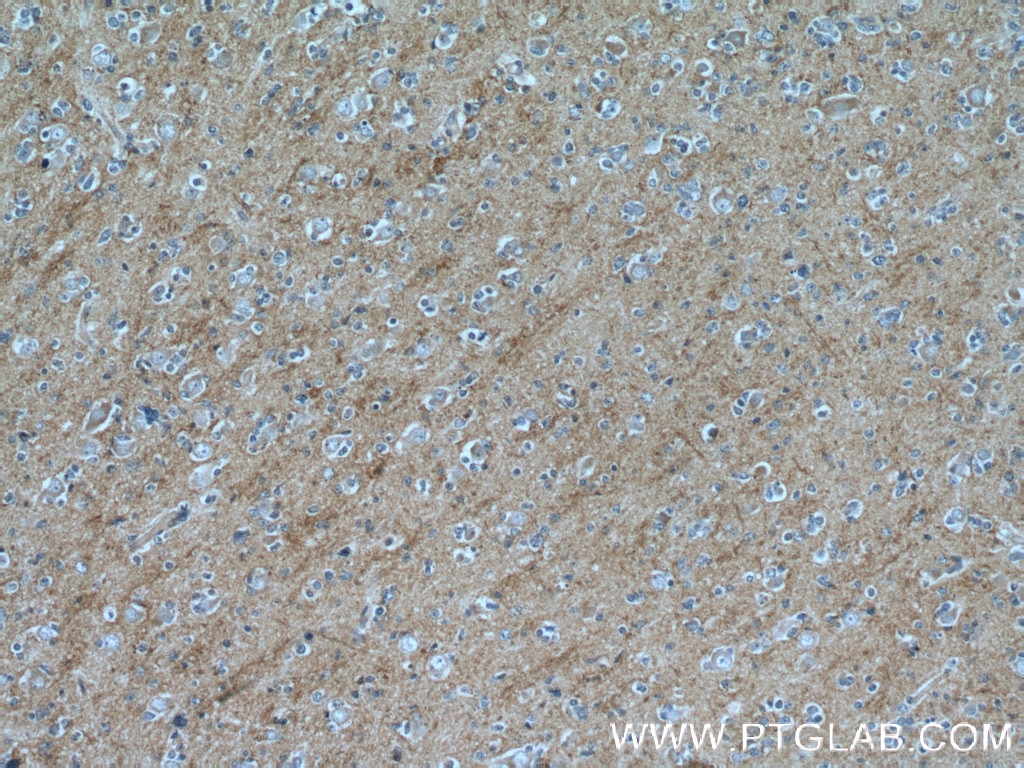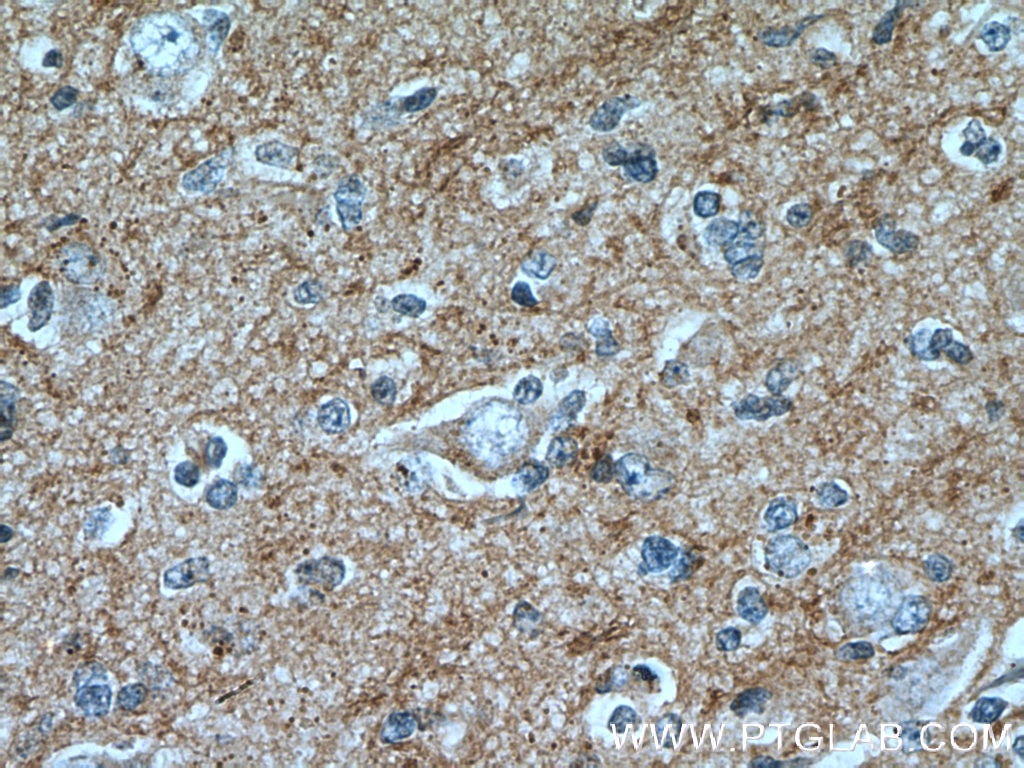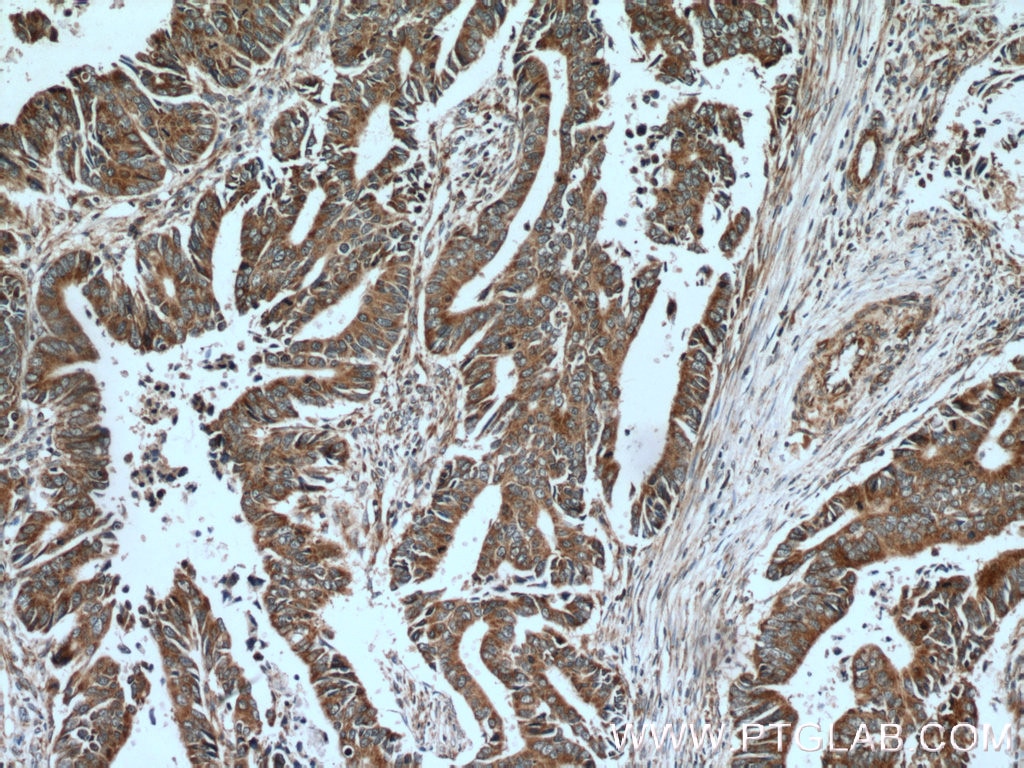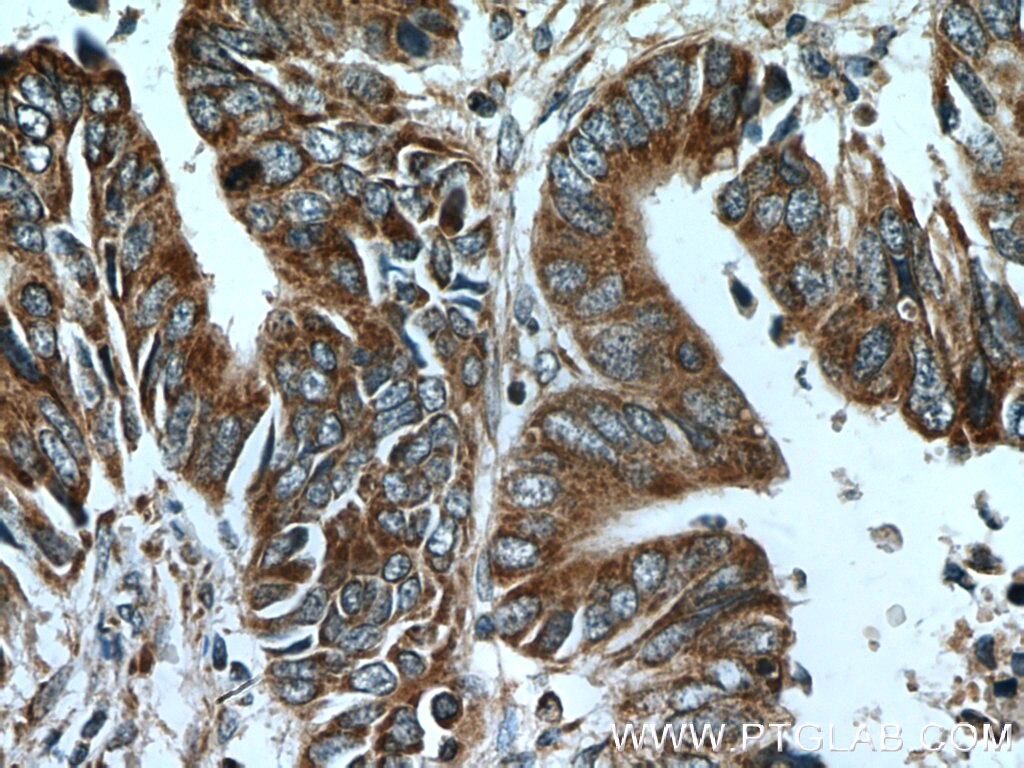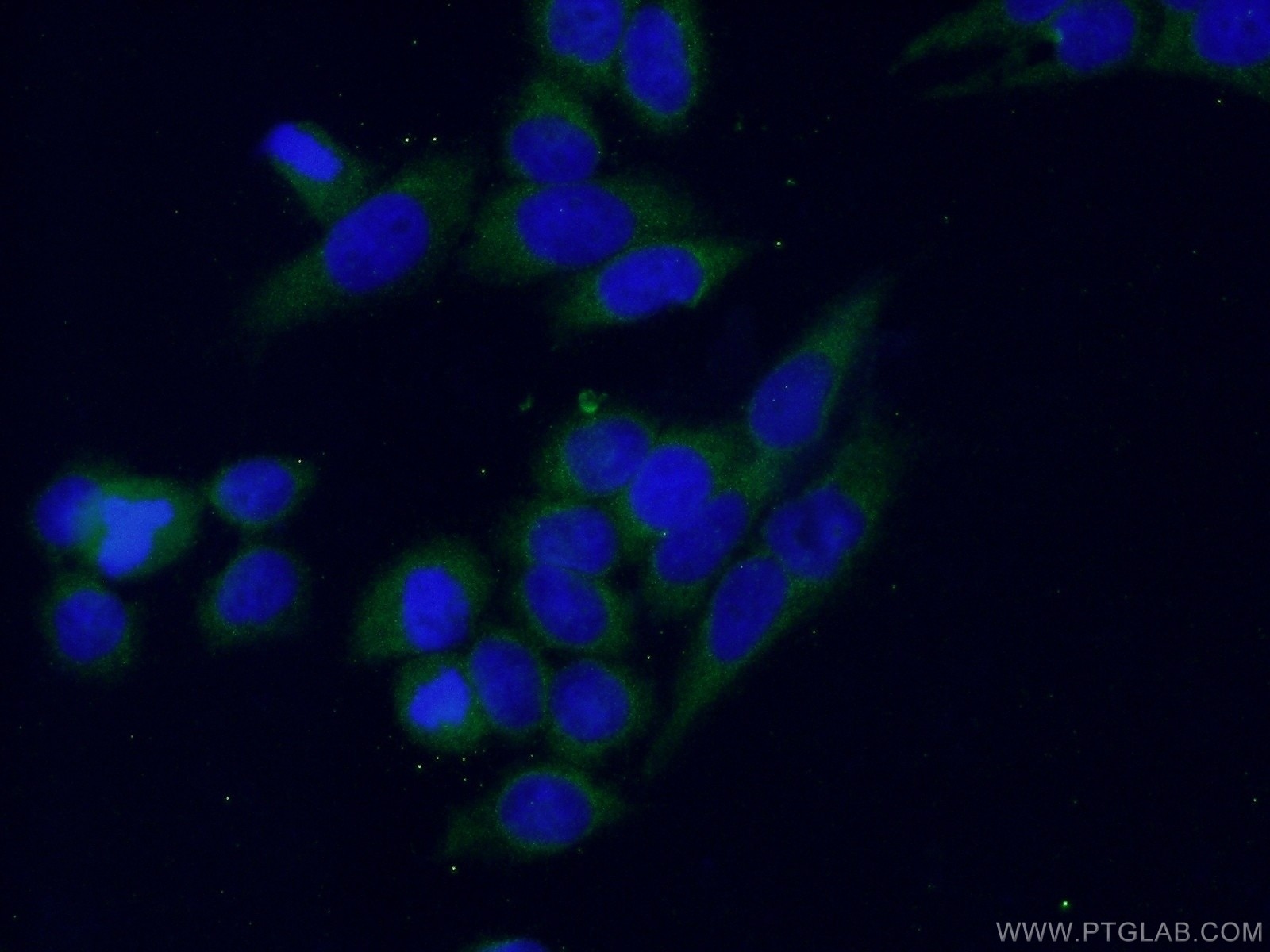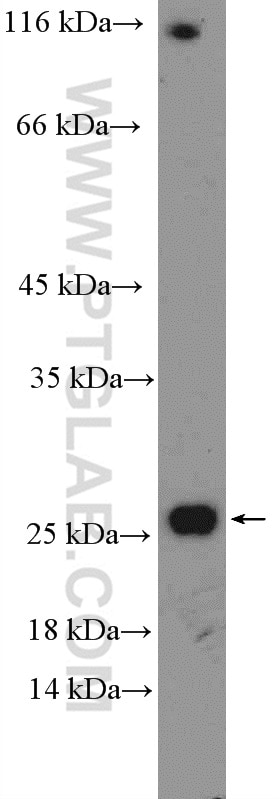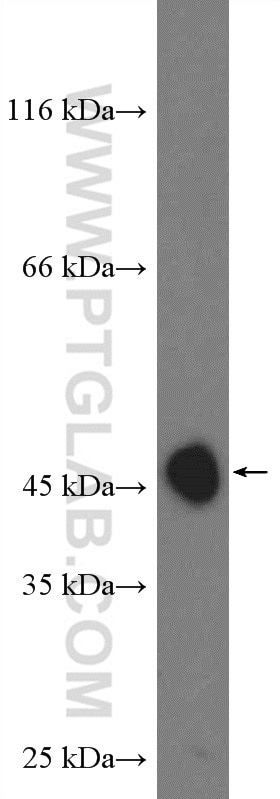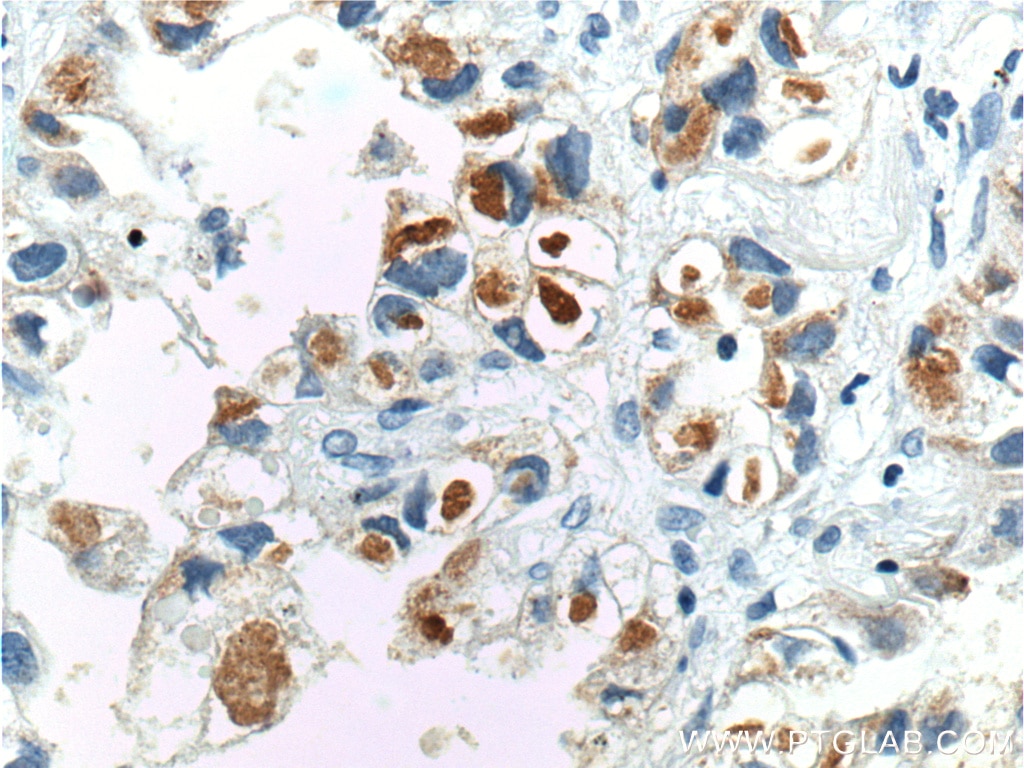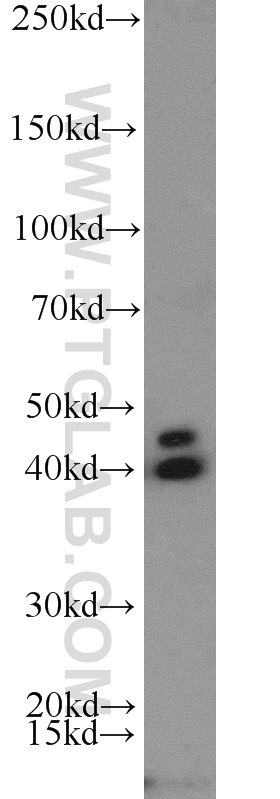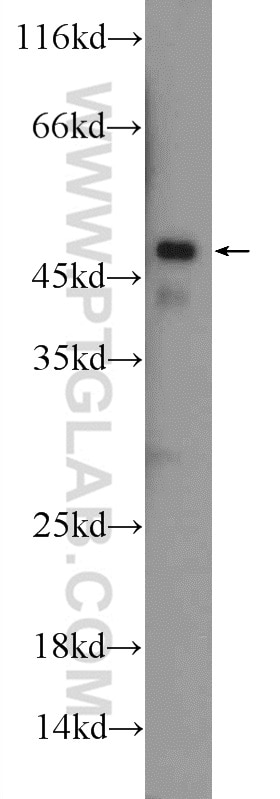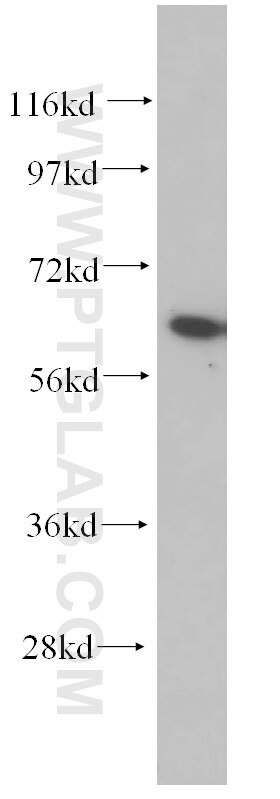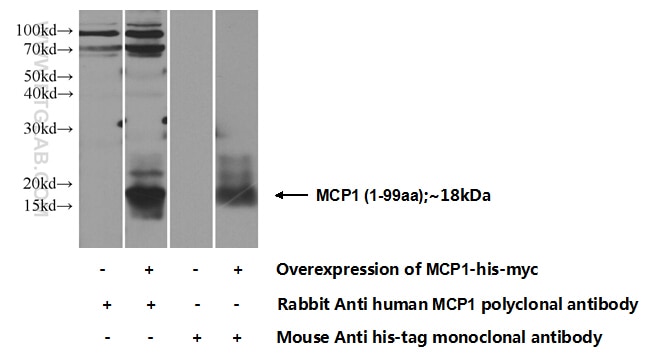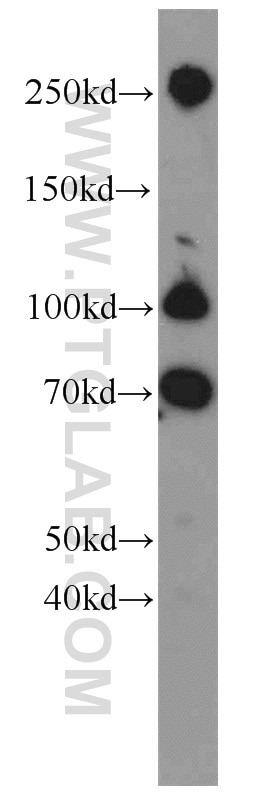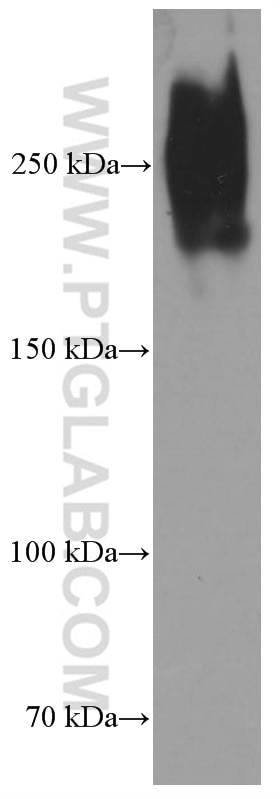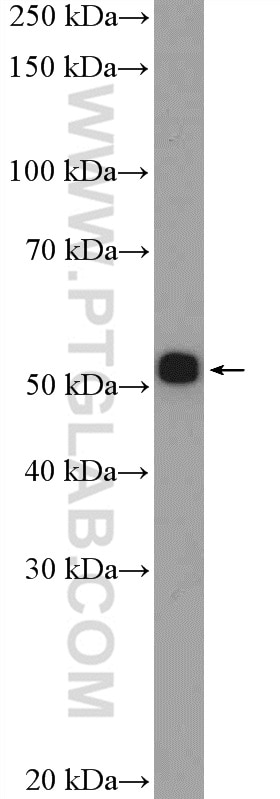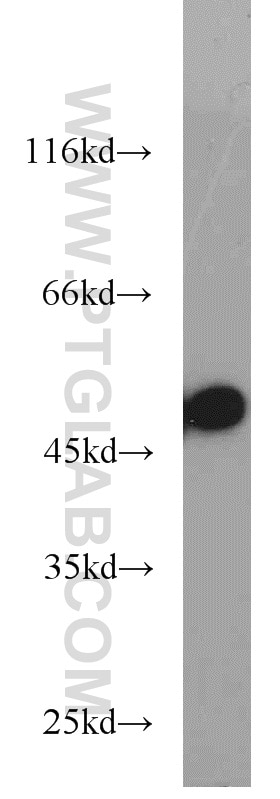- Featured Product
- KD/KO Validated
CTGF Polyklonaler Antikörper
CTGF Polyklonal Antikörper für ELISA
Wirt / Isotyp
Kaninchen / IgG
Getestete Reaktivität
human, Maus und mehr (3)
Anwendung
WB, IHC, IF, ELISA
Konjugation
Unkonjugiert
Kat-Nr. : 23936-1-AP
Synonyme
Galerie der Validierungsdaten
Geprüfte Anwendungen
Empfohlene Verdünnung
| Anwendung | Verdünnung |
|---|---|
| It is recommended that this reagent should be titrated in each testing system to obtain optimal results. | |
| Sample-dependent, check data in validation data gallery | |
Veröffentlichte Anwendungen
| KD/KO | See 5 publications below |
| WB | See 72 publications below |
| IHC | See 22 publications below |
| IF | See 10 publications below |
| ELISA | See 1 publications below |
Produktinformation
23936-1-AP bindet in WB, IHC, IF, ELISA CTGF und zeigt Reaktivität mit human, Maus
| Getestete Reaktivität | human, Maus |
| In Publikationen genannte Reaktivität | human, Hausschwein, Hund, Maus, Ratte |
| Wirt / Isotyp | Kaninchen / IgG |
| Klonalität | Polyklonal |
| Typ | Antikörper |
| Immunogen | CTGF fusion protein Ag21008 |
| Vollständiger Name | connective tissue growth factor |
| Berechnetes Molekulargewicht | 349 aa, 38 kDa |
| GenBank-Zugangsnummer | BC087839 |
| Gene symbol | CTGF |
| Gene ID (NCBI) | 1490 |
| Konjugation | Unkonjugiert |
| Form | Liquid |
| Reinigungsmethode | Antigen-Affinitätsreinigung |
| Lagerungspuffer | PBS mit 0.02% Natriumazid und 50% Glycerin pH 7.3. |
| Lagerungsbedingungen | Bei -20°C lagern. Nach dem Versand ein Jahr lang stabil Aliquotieren ist bei -20oC Lagerung nicht notwendig. 20ul Größen enthalten 0,1% BSA. |
Hintergrundinformationen
CTGF, also known as CCN2 or connective tissue growth factor, is a member of the CCN family of matricellular proteins. CTGF, a cysteine-rich, matrix-associated, heparin-binding protein, is widely expressed in various human tissues and organs. CTGF has important roles in many biological processes, including cell adhesion, migration, proliferation, angiogenesis, skeletal development, and tissue wound repair, and is critically involved in fibrotic disease and several forms of cancers. In western blotting, there are three different forms of CTGF reported: monomeric forms at approximately 36-38 kDa, homodimeric forms at approximately 70 kDa, and lower molecular mass fragment forms.
Protokolle
| Produktspezifische Protokolle | |
|---|---|
| WB protocol for CTGF antibody 23936-1-AP | Protokoll herunterladen |
| IHC protocol for CTGF antibody 23936-1-AP | Protokoll herunterladen |
| IF protocol for CTGF antibody 23936-1-AP | Protokoll herunterladen |
| Standard-Protokolle | |
|---|---|
| Klicken Sie hier, um unsere Standardprotokolle anzuzeigen |
Publikationen
| Species | Application | Title |
|---|---|---|
EBioMedicine Aspirin targets P4HA2 through inhibiting NF-κB and LMCD1-AS1/let-7g to inhibit tumour growth and collagen deposition in hepatocellular carcinoma. | ||
Cell Death Differ O-GlcNAcylation of MORC2 at threonine 556 by OGT couples TGF-β signaling to breast cancer progression.
| ||
Oncogene Deacetylation of tumor-suppressor MST1 in Hippo pathway induces its degradation through HBXIP-elevated HDAC6 in promotion of breast cancer growth. | ||
Acta Pharmacol Sin KLF4 initiates sustained YAP activation to promote renal fibrosis in mice after ischemia-reperfusion kidney injury. | ||
Mol Ther Nucleic Acids The RNA binding protein QKI5 suppresses ovarian cancer via downregulating transcriptional coactivator TAZ. |

